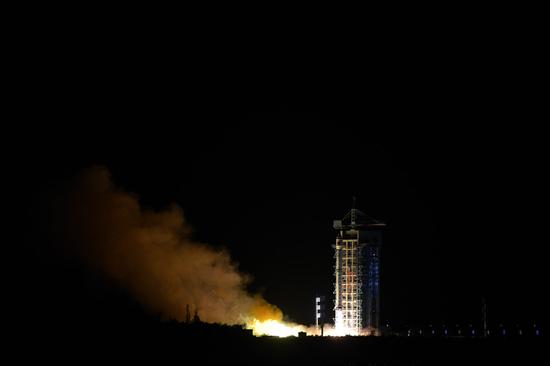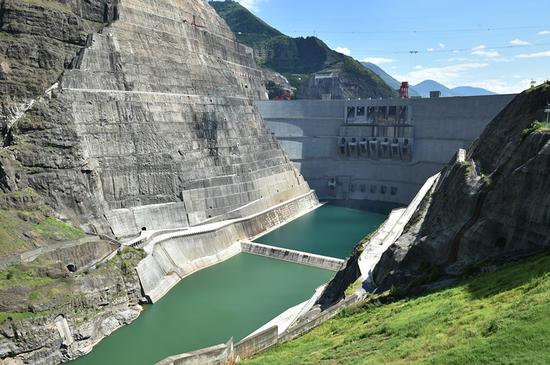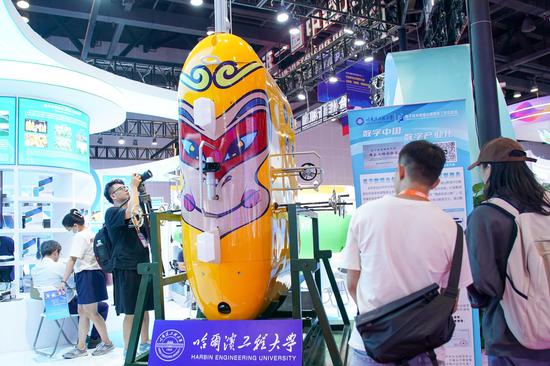
The Xuelong 2 icebreaker docks at its home port in Shanghai on Wednesday as it returns from a scientific expedition mission in the Arctic region. (Photo/China Daily)
China's 13th scientific expedition to the Arctic Ocean finished on Wednesday with the expedition team returning to Shanghai.
Carrying the mission crew, the Xuelong 2 icebreaker docked at its home port in Shanghai amid an afternoon homecoming ceremony, according to the Ministry of Natural Resources.
The expedition team set sail from Shanghai on July 12 and traveled more than 15,500 nautical miles (28,700 kilometers).
During the 78-day journey, researchers reached the North Pole region and carried out comprehensive surveys on the atmosphere, hydrology, biology and sea ice along the route. They conducted a series of observations, surveying and sampling operations in the central section of the Pacific Arctic region and the Gakkel Ridge, the ministry said in a news release.
Their work is expected to help fill the gap in the country's database about the North Pole region, enable scientists to further understand the process of changes in sea ice and ocean currents, and expand knowledge about the rapid environmental changes in the Arctic Ocean and its ecological response. It will also provide data support for effectively coping with the impact of global climate change on China, the ministry noted.
It was the first time a Chinese research vessel had performed scientific tasks in the North Pole region, putting an end to the nation's lack of relevant data about this region and extensively expanding the scale of the country's Arctic research. It also verified the capability of China's domestically developed icebreaker and polar research equipment, the ministry said.
Liu Jiping, a professor at Sun Yat-sen University in Guangdong province and a renowned scientist in polar studies, said that in the past, Chinese ships had sailed past the North Pole region but Chinese researchers were unable to conduct scientific operations there due to technical and equipment restraints.
"So this expedition has become a breakthrough in terms of scientists' reach. On the other hand, the scientists took advantage of this journey to test some newly developed equipment and the devices' performance will be considered when engineers improve their designs," he said.
"Scientifically speaking, researchers made some in-depth geographical observations and investigations during the expedition — for instance, they mapped the cross-sections of some seabed areas," Liu noted.
Talking about future polar missions, the scientist called for more opportunities for foreign researchers to take part in China's polar expeditions, saying that will extensively strengthen scientists' cooperation and enable them to share their expertise.


















































 京公网安备 11010202009201号
京公网安备 11010202009201号